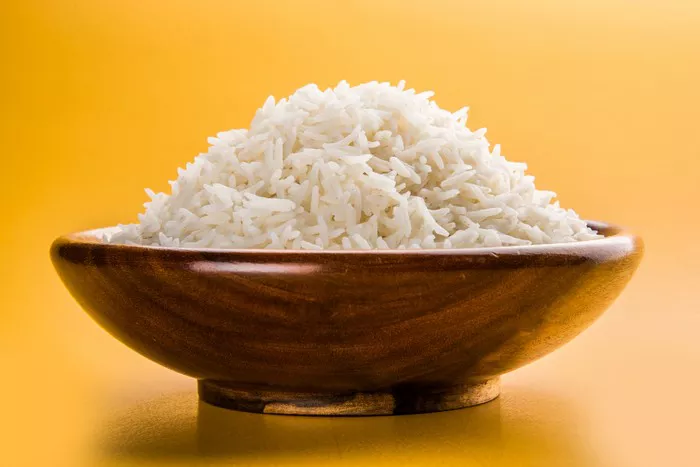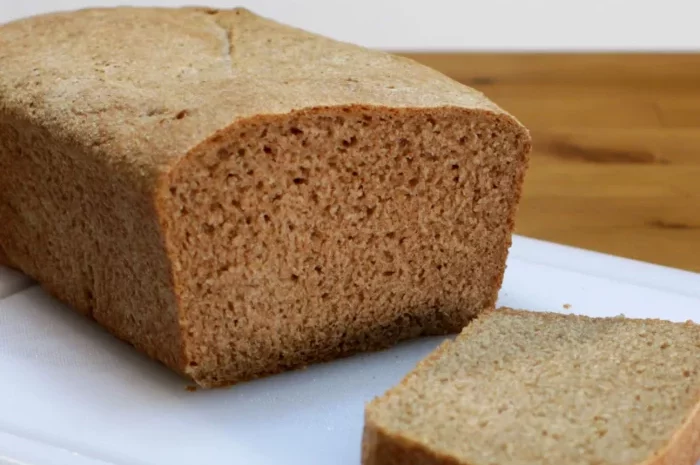Managing High Blood Sugar: Immediate and Long-Term Dietary Strategies
When blood sugar levels spike, it’s crucial to take immediate dietary actions to mitigate the effects and prevent complications. High blood sugar, or hyperglycemia, can lead to serious health issues if not managed promptly. This article provides comprehensive guidance on what to eat when blood sugar is high, foods to avoid, and long-term dietary strategies for maintaining stable blood sugar levels. Additionally, it covers the importance of understanding the glycemic index, portion control, hydration, meal planning, and the significance of professional advice.
Immediate Dietary Actions
When experiencing high blood sugar levels, it is essential to consume foods that can help lower blood sugar quickly. Certain foods are beneficial because they slow down digestion and prevent further spikes in blood sugar.
Fiber-Rich Foods
Fiber-rich foods are excellent for managing blood sugar levels immediately. They slow the absorption of sugar into the bloodstream, helping to prevent further spikes. Some high-fiber foods that you can consume include:
Vegetables: Non-starchy vegetables such as broccoli, spinach, and kale are rich in fiber and low in carbohydrates.
Legumes: Beans, lentils, and chickpeas are high in fiber and protein, which can help stabilize blood sugar.
Whole Grains: Foods like oatmeal, quinoa, and barley provide fiber and are lower on the glycemic index.
Protein-Rich Foods
Including protein in your immediate dietary response can help stabilize blood sugar by slowing down carbohydrate digestion. Some good protein sources include:
Lean Meats: Chicken, turkey, and fish are excellent sources of lean protein.
Nuts and Seeds: Almonds, walnuts, chia seeds, and flaxseeds provide protein and healthy fats.
Greek Yogurt: This type of yogurt is high in protein and can help manage blood sugar levels.
Healthy Fats
Healthy fats can also slow the absorption of sugar into the bloodstream. Some beneficial sources of healthy fats include:
Avocado: High in monounsaturated fats, which are good for heart health and blood sugar control.
Olive Oil: A source of healthy fats that can be used in salads or cooking.
Fatty Fish: Fish like salmon and mackerel are rich in omega-3 fatty acids.
Foods to Avoid
Certain foods and beverages can exacerbate high blood sugar levels and should be avoided during hyperglycemic episodes. These include:
Sugary Beverages: Sodas, fruit juices, and energy drinks contain high amounts of sugar that can spike blood sugar levels rapidly.
Refined Carbohydrates: White bread, pastries, and other refined carbs break down quickly into sugar, causing blood sugar spikes.
Processed Foods: Foods high in preservatives, sodium, and added sugars can negatively impact blood sugar levels.
High Glycemic Index Foods: Foods such as white rice, potatoes, and sugary cereals are high on the glycemic index and can cause rapid increases in blood sugar.
Long-Term Dietary Strategies
Managing blood sugar levels effectively requires long-term dietary changes. Incorporating foods with a low glycemic index and making consistent, healthy eating choices can help maintain stable blood sugar levels.
Incorporate Low Glycemic Index Foods
The glycemic index (GI) measures how quickly a food raises blood sugar levels. Foods with a low GI are digested and absorbed more slowly, leading to a gradual rise in blood sugar. Some low GI foods include:
Non-Starchy Vegetables: Such as leafy greens, bell peppers, and cucumbers.
Whole Grains: Brown rice, quinoa, and barley are lower on the glycemic index compared to their refined counterparts.
Fruits: Berries, apples, and pears have a lower glycemic index compared to tropical fruits like pineapple and mango.
Balanced Meals
Creating balanced meals with a combination of carbohydrates, proteins, and fats can help stabilize blood sugar levels. Aim for meals that include:
Complex Carbohydrates: Such as whole grains and legumes.
Lean Proteins: Including chicken, fish, tofu, and legumes.
Healthy Fats: Like avocado, nuts, seeds, and olive oil.
Regular Meal Times
Eating at regular intervals can help manage blood sugar levels. Aim to have meals and snacks at consistent times each day to prevent large fluctuations in blood sugar.
Understanding Glycemic Index
The glycemic index (GI) is a tool that ranks foods based on how they affect blood sugar levels. Foods are scored on a scale from 0 to 100, with higher values indicating a faster rise in blood sugar.
Low GI Foods
Low GI foods (55 or less) are digested and absorbed slowly, leading to a gradual rise in blood sugar. Examples include:
Legumes: Lentils, chickpeas, and kidney beans.
Non-Starchy Vegetables: Such as spinach, broccoli, and tomatoes.
Whole Grains: Brown rice, quinoa, and barley.
Medium GI Foods
Medium GI foods (56-69) have a moderate impact on blood sugar levels. Examples include:
Whole Wheat Products: Whole wheat bread and pasta.
Sweet Potatoes: A more moderate option compared to white potatoes.
Certain Fruits: Such as bananas and grapes.
High GI Foods
High GI foods (70 and above) can cause rapid spikes in blood sugar. Examples include:
Refined Grains: White bread, white rice, and pasta.
Sugary Snacks: Cakes, cookies, and candies.
Certain Fruits: Watermelon and pineapple.
Understanding the glycemic index of foods can help in making informed dietary choices that contribute to better blood sugar management.
Portion Control
Portion control plays a critical role in managing blood sugar levels. Consuming large portions of food, even if it’s healthy, can lead to elevated blood sugar levels.
Tips for Portion Control
Use Smaller Plates: This can help reduce the amount of food you consume.
Measure Portions: Use measuring cups and food scales to ensure proper portion sizes.
Mindful Eating: Pay attention to hunger and fullness cues to avoid overeating.
Balanced Portions: Ensure each meal includes a balanced portion of carbohydrates, proteins, and fats.
Hydration
Staying hydrated is essential for overall health and can influence blood sugar levels. Dehydration can lead to higher blood sugar levels because less water in the body leads to a higher concentration of glucose in the blood.
Hydration Tips
Drink Water Regularly: Aim for at least eight 8-ounce glasses of water per day, or more if you are active.
Avoid Sugary Drinks: Opt for water, herbal teas, or other non-caloric beverages instead of sodas and sweetened drinks.
Eat Water-Rich Foods: Include fruits and vegetables with high water content, such as cucumbers, tomatoes, and watermelon, in your diet.
Meal Planning Tips
Effective meal planning can help maintain stable blood sugar levels throughout the day. Here are some tips for planning balanced meals:
Plan Ahead
Create a Weekly Menu: Plan meals and snacks for the week to ensure a balanced diet.
Prepare in Advance: Cook and store meals in advance to avoid the temptation of unhealthy, quick options.
Balanced Nutrients
Include All Macronutrients: Ensure each meal contains a mix of carbohydrates, proteins, and fats.
Focus on Fiber: Incorporate fiber-rich foods to help regulate blood sugar levels.
Healthy Snacks
Choose Smart Snacks: Opt for nuts, seeds, vegetables, and yogurt instead of processed snacks.
Portion Snacks: Pre-portion snacks to avoid overeating.
Monitor Blood Sugar
Keep a Food Diary: Track what you eat and how it affects your blood sugar levels.
Adjust as Needed: Use your food diary to make adjustments to your diet as needed to maintain stable blood sugar levels.
Professional Advice
While the dietary strategies outlined in this article can help manage blood sugar levels, it is important to seek personalized advice from healthcare professionals. A registered dietitian or certified diabetes educator can provide tailored
recommendations based on your specific health needs and goals.
Consulting Healthcare Professionals
Personalized Plans: Work with a dietitian to create a meal plan that fits your lifestyle and health needs.
Regular Check-Ups: Schedule regular appointments with your healthcare provider to monitor your blood sugar levels and adjust your diet as needed.
Education and Support: Healthcare professionals can provide education on managing diabetes and offer support for making long-term dietary changes.
Conclusion
Managing high blood sugar levels requires both immediate actions and long-term dietary strategies. By incorporating fiber-rich foods, avoiding high-sugar and high-GI foods, and making balanced, nutritious choices, you can effectively control your blood sugar levels. Understanding the glycemic index, practicing portion control, staying hydrated, and planning meals are essential components of this process. Always seek professional advice to tailor dietary changes to your individual needs, ensuring optimal health and well-being.
Related Topics



























